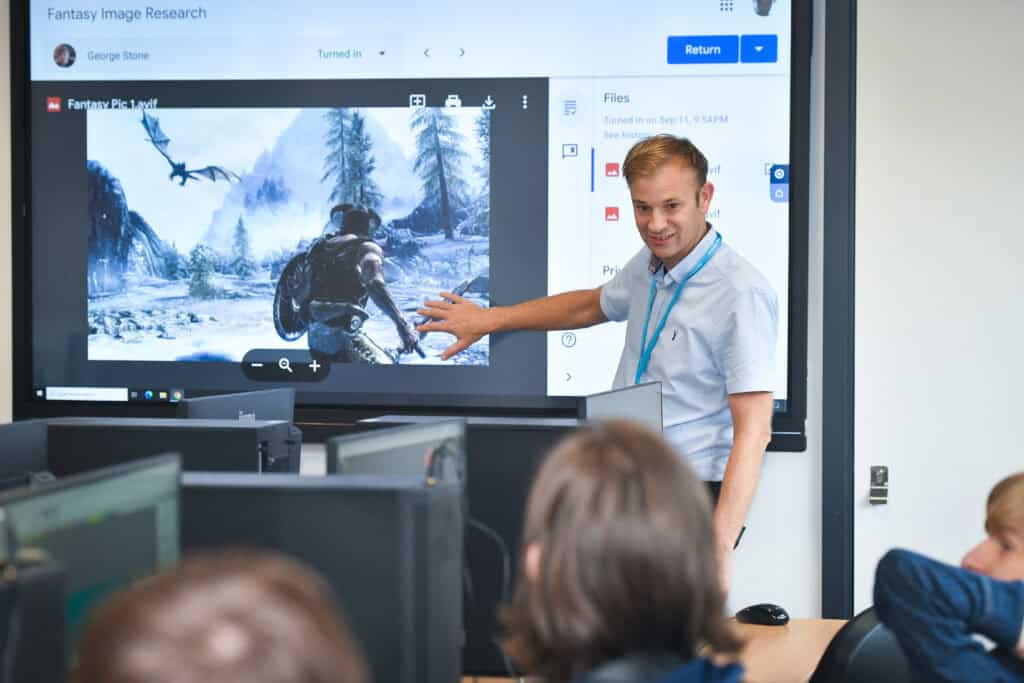Our continuing goal is to drive further digital equity and innovation across our curriculum and communities.
The CBI identified in 2019 that we were in the midst of the Fourth Industrial Revolution, driven by technologies such as AI, automation and biotechnology. Providing our communities with access to, and training in, these future skills is essential for digital equity and prosperity with estimates suggesting more than three quarters of all jobs globally will require some element of digital skills by 2030.
However, Skills England recently identified that digital and computing occupations in the UK face significant shortages which were more likely to be due to skills (81%) than they were across all occupations (63%).
While rapid advances in AI will increase productivity and create new high value jobs, digital skills will be the basis of this adoption and will be essential to provide an opportunity for a wider range of people to benefit from digital jobs.
Nationally, the UK is making significant strides regarding essential digital skills with data from 2024 indicating that 8.6 million more people have the highest digital capability since 2020.
At the same time, the number of people digitally disengaged has steadily decreased with just 3% (1.6 million) people offline. While this is positive, around eight million people (15% of the UK population) still lack the fundamental digital skills for life.


